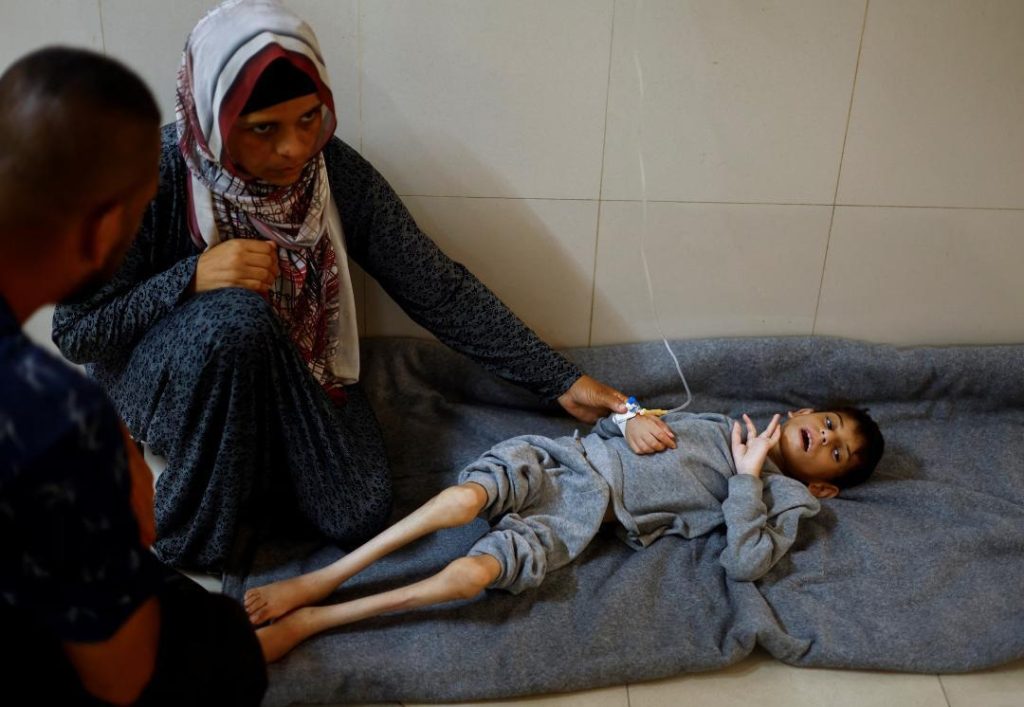
I’ve Seen Pics on TV, the Kids Look Very Hungry; Starvation in Gaza is Real: Trump
In a statement that has sent shockwaves across the Middle East, US President Donald Trump has claimed that starvation in Gaza is real and not just a myth. Trump’s assertion comes in response to Israeli Prime Minister Benjamin Netanyahu’s statement that there is “no starvation” in the Gaza Strip.
During a recent press conference, Trump was asked about the situation in Gaza and whether he believed there was starvation among the Palestinian population. Trump’s response was straightforward and unequivocal. “I’ve seen the pictures on TV, and the kids look very hungry. That’s real starvation stuff…and you can’t fake that,” he said.
Trump’s comments are significant because they come at a time when the situation in Gaza is dire. The Gaza Strip has been under a strict blockade imposed by Israel and Egypt since 2007, which has led to widespread poverty, unemployment, and food insecurity. According to the United Nations, around 70% of the population in Gaza relies on international aid to survive.
The situation in Gaza has been exacerbated by the ongoing conflict between Israel and Palestinian militant groups, which has led to widespread destruction and displacement. The UN has warned that the situation in Gaza is becoming increasingly dire, with many families struggling to access basic necessities such as food, water, and medicine.
Netanyahu’s claim that there is “no starvation” in Gaza has been widely criticized by humanitarian organizations and human rights groups. The Israeli government has long been accused of using the blockade as a form of collective punishment against the Palestinian population, which has led to widespread human suffering.
Trump’s proposal to set up food centers in Gaza is a welcome development, but it is unclear whether his administration will follow through on this promise. The United States has a long history of providing aid to Palestinians, but it has also been a major supporter of Israel and has often used its diplomatic clout to block attempts by the international community to lift the blockade.
One of the main challenges to setting up food centers in Gaza is the blockade imposed by Israel and Egypt. The blockade makes it difficult for aid to enter the territory, and many aid organizations have reported incidents of aid being confiscated by Israeli authorities.
Despite these challenges, humanitarian organizations are working tirelessly to provide assistance to those in need. The UN Relief and Works Agency for Palestine Refugees (UNRWA) is one of the main aid organizations operating in Gaza, and it provides vital services such as food, shelter, and medical care to thousands of Palestinians.
In recent years, the situation in Gaza has become increasingly dire, and the international community has been forced to take action. In 2018, the UN General Assembly passed a resolution calling for Israel to lift the blockade of Gaza, and in 2019, the European Union launched a major aid package to support the Palestinian population.
Trump’s comments about starvation in Gaza are significant because they highlight the dire humanitarian situation in the territory. While his proposal to set up food centers is welcome, it is unclear whether his administration will follow through on this promise. The international community must continue to work together to address the root causes of the crisis in Gaza and to provide humanitarian assistance to those in need.
Source:



